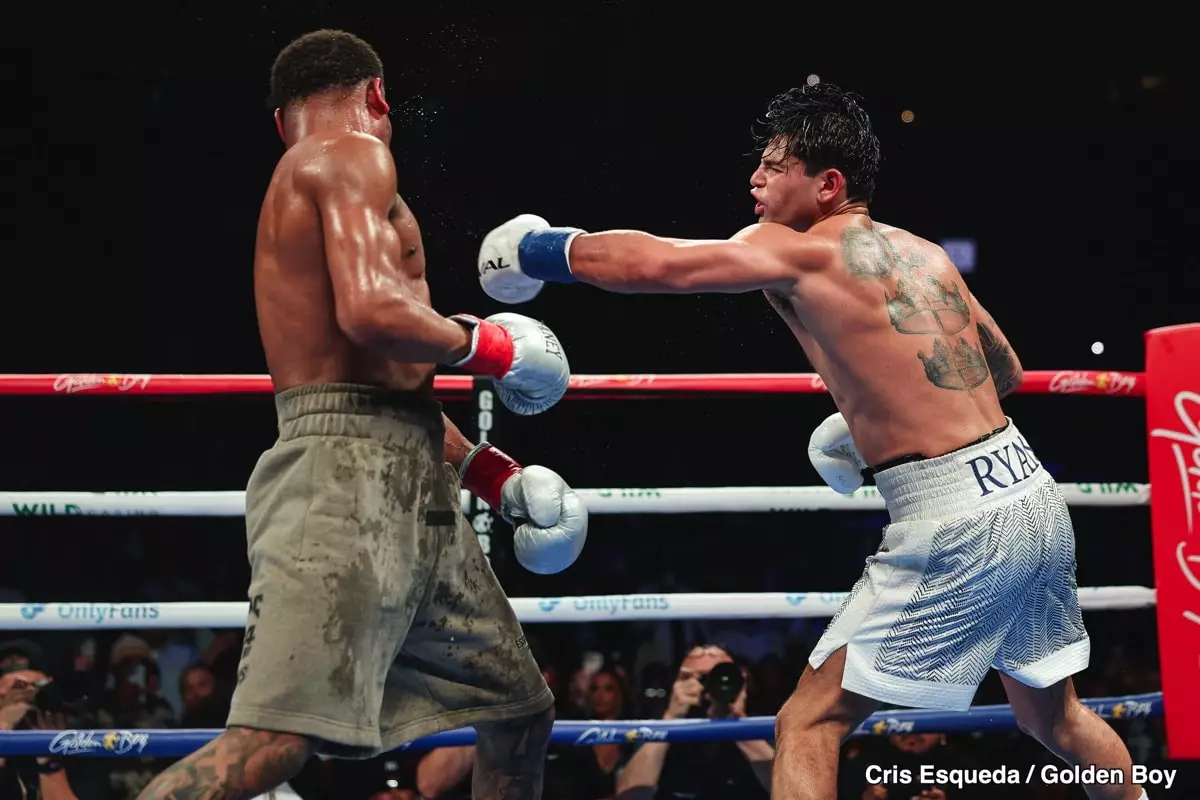Devin Haney’s recent decision to file a lawsuit against Ryan Garcia due to allegations of performance-enhancing drug (PED) use raises significant questions regarding the integrity of boxing and the implications of such legal actions on the sport. Following their much-publicized fight, where Garcia emerged victorious, it has come to light that Garcia tested positive for Ostarine, an anabolic steroid. This incident has prompted Haney to seek justice not merely as a fighter but as a voice advocating for cleaner competition in boxing. The potential ramifications of this lawsuit go beyond personal grievances; they could establish a precedent that deters other athletes from pursuing unfair advantages through illicit means.
Industry insiders, like promoter Eddie Hearn, believe that Haney’s legal actions could represent a pivotal shift in how boxing addresses the PED problem. While traditional penalties for drug violations may lack the necessary bite to deter fighters, a substantial financial lawsuit could impose a heavy toll that could dissuade athletes from using performance enhancements. Hearn articulates a vision where the fear of financial ruin looms larger than the potential for competitive gains. Essentially, Haney’s lawsuit could initiate a broader movement toward accountability and adherence to ethical standards within the sport, providing a much-needed deterrent mechanism.
However, the troubling aspect arises from the possibility that the lawsuit may not achieve its intended purpose. If it fails, it may signal to fighters that the rewards of cheating continue to outweigh the risks, thus perpetuating a cycle where integrity takes a backseat to immediate financial and competitive gain. The implications of this dichotomy are troubling, as the allure of quick success could lead fighters to take desperate measures in hopes of securing lucrative fight opportunities.
Despite the controversy surrounding the lawsuit, one cannot overlook the state of affairs for Devin Haney himself. Ranked at 31-0 with 15 knockouts, Haney faces challenges in re-establishing his reputation after the loss to Garcia. Not only does he navigate the treacherous waters of public perception, but the mental toll of a legal fight alongside a possible rematch against Garcia weighs heavily on his career trajectory. The legal battle may indeed become the center of his post-fight narrative if it succeeds in garnering public support or pity for the alleged injustice he faces.
Yet, the prospect of a prolonged legal fight could also diminish his attractiveness as a contender in the ring. Promoters and other fighters may think twice about collaborating with Haney if there’s a likelihood of legal retribution following a loss. Boxing typically thrives on the promise of immediate action and reward, and Haney’s lawsuit could potentially deter other fighters from entering the ring with him out of fear of similar consequences—a situation that could isolate Haney within a competitive landscape that thrives on partnerships and mutual interests.
While the conversation about PEDs is crucial, it is essential to highlight a related but often neglected issue—weight manipulation. Hearn’s commentary largely circumscribed the discussion to the realm of performance-enhancers without addressing the rampant practice of fighters drastically cutting and then rehydrating significant amounts of weight before fights. This method can not only create unfair matchups but can also pose severe health risks. It seems counterintuitive that boxing regulations are stringent on substance abuse while neglecting the equally alarming phenomenon of weight bullying.
Fighters can jump upward of 20 pounds after weigh-ins, which can lead to unsafe disparities on fight night. Such practices can yield devastating consequences and deserve more attention from both regulatory bodies and promoters. Advocating for more stringent weight checks or same-day weigh-ins could enhance safety and fairness, thus ensuring that all athletes compete on a level playing field.
Devin Haney’s lawsuit against Ryan Garcia stands as a potentially transformative moment in boxing, albeit one fraught with complexities. While it may serve as a deterrent against the use of PEDs, it also introduces new barriers that could isolate Haney and diminish his future competitiveness. Moreover, without addressing other critical issues like weight manipulation, the sport risks becoming riddled with inequities that further threaten the health and safety of its athletes. As boxing navigates this tumultuous terrain, its commitment to integrity and fairness will ultimately determine its future. The landscape of boxing could indeed shift dramatically, yet whether these shifts will be constructive or detrimental remains to be seen.

